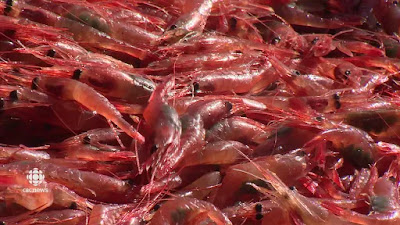DFO will 'adjust rules' to address safety in recreational food fishery; my question in committee
I posed a series of questions today (Feb. 24) at the House of Commons Standing Committee on Fisheries and Oceans, which is studying recreational fisheries across Canada. The witness responding to my question (I had 3 minutes for questions and answers) is Kevin Stringer, assistant deputy minister. Newfoundland and Labrador's recreational cod fishery is opened for 32 days, much less than the Maritimes.
Mr. Ryan Cleary: Thanks, Mr. Chair.
In terms of recreational fisheries there are a lot of questions I could ask. I could ask questions about salmon for example, why our salmon are leaving our waters. They are going out to sea, and they are not coming back from the sea. That's one of the questions for example that's been around for a dog's age. It just hasn't been answered. And trout jurisdiction. It goes on and on.
But I'm going to go back to recreational cod fisheries. One of the questions I asked you, Mr. Stringer, was how do the 32 days in Newfoundland and Labrador compare to the Maritimes?
I know Mr. MacAulay asked you a question about PEI. Maybe for the benefit of the committee you can provide us with the times for all the recreational fisheries for all of the Atlantic provinces.
You don't have that number 32 comparison today? No?
Mr. Kevin Stringer: There's far more time than any other fishery, but I'll have the specifics, and we would be happy to provide that.
Mr. Ryan Cleary: I would appreciate that.
My quick question is this because I want to turn it over to François. The two points you mentioned, Mr. Stringer, were codfish are still delicate in waters off Newfoundland and Labrador compared to the 1980s. You also mentioned how Newfoundlanders and Labradorians loved to fish, and you're dead on the money about that.
But these restrictions restricting the fishery to two different times, 32 days, has put lives in jeopardy. Some would argue at home that it has actually cost lives in certain incredibly unfortunate circumstances.
Is there any movement in the department to open that up, again in comparison to say the Maritimes?
Mr. Kevin Stringer: I think a member made the point that last year when we saw the weather challenges that we had, it was late September, right? And there was an understanding that people were possibly going to be out and fishing in very difficult conditions and we didn't want to have an incentive for people to do it. I think you will find that's traditionally been an approach where we will ensure that, as much as possible, we'll adjust our rules to ensure on a case-by-case basis to address safety.
You'll have also seen that when we announce the fishery is going to open on this date, sometimes it doesn't open on that date because the weather's bad. We know that when we shoot the gun off that the fishery is about to start, everybody goes out regardless, so we will take those things into account. Safety is a huge issue when you have that many people out on the water. To be candid, it's one thing in inland areas where it's an issue, but it's different being out on a lake and on a river than it is to being out at sea. Even if it's in Conception Bay, it's still out at sea. So we do take that seriously. We watch it carefully. We made the decision that was made last year and it's something we need to pay attention to.
The Chair: Mr. Leef, first, and then I'll move to you, Mr. Lapointe.


Comments